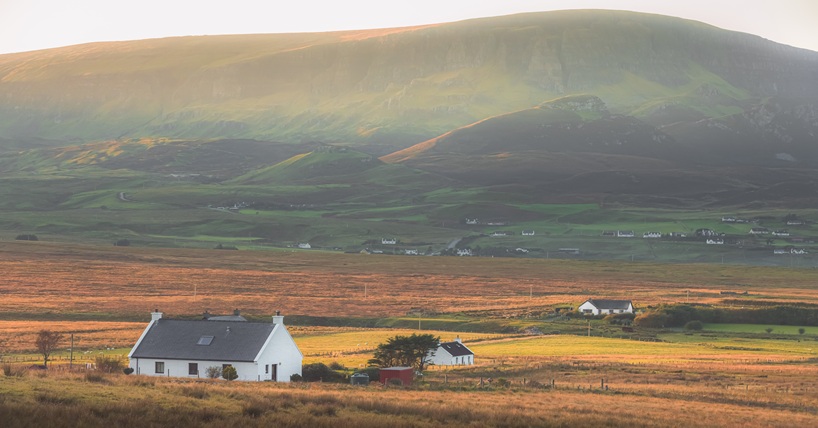Scottish Land Reform Bill
Newcastle academic helps pave way for Scottish land reform
Published on: 11 November 2025
Research by a Newcastle University academic has helped bring about a more equal approach to the way land is managed in Scotland.
The Scottish Parliament has passed legislation which will give communities a much greater say in how land is used and managed.
Central to the measures in the Land Reform (Scotland) Bill is an attempt to address the concentration of land ownership, give greater transparency to how the ownership and boundaries of small landholdings have changed over time, and strengthen the rights of local communities – enabling them to take part in decisions about land use, ownership and stewardship.
The Bill was informed in part by research by Professor Annie Tindley, Head of the School of History, Classics and Archaeology, that examined Scottish small landholdings, a historic and neglected type of agricultural tenure.
Through extensive archival research by Professor Tindley, and a collaboration with the Scottish Government’s Rural and Environmental Science and Analytical Services Division, the project demonstrated how historical evidence and modern data tools could underpin fairer, more transparent decision-making and help communities plan for sustainable development.
Professor Tindley said: “The continuing urgency of Scotland’s land reform legislative programme speaks to the importance of a robustly evidenced and historically grounded understanding of the key issues. Much of the debate is shaped by historic land ownership and management practices and shifting these to better meet the climate crisis and other societal challenges is one of the biggest issues facing Scotland today. Supporting landowners and policymakers in a stronger historical understanding provides a helpful perspective in what can be an acrimonious context.”

At their height in the 1930s, there were approximately 450 smallholdings in Scotland but this has now fallen to around 74 due to demographic changes and a lack of oversight.
The pilot scheme, which ran at Grassmillees, Ayrshire, between 2017 and 2019 created a land register and was the first time in nearly a century that small landholders had access to a clear record of the ownership and tenure type of their landholdings.
The register also enabled simplified legal and planning processes and strengthened local decision making. It was praised by the Scottish Government for helping them understand how a register could support both policy reform and comply with duties under the existing Land Reform (Scotland) Act 2016 under which it has a duty to ensure that vacant holdings are offered to neighbouring and new small landholders, which was not being enforced.
The new Land Reform Bill will provide greater protections for tenant farmers and small landholders and ensure fair compensation if they are removed from their holding. It also modernises how new small landholdings are created and operate, protecting their rights and helping new farmers to get access to land.
The changing dynamics between landlords and tenant farmers and rural communities will be the focus of a free Insights public lecture at Newcastle University to be given by Sarah-Jane Laing, Chief Executive, Scottish Land & Estates. The lecture will take place on Tuesday 25 November, for tickets and further information go to www.ncl.ac.uk/university-events/



